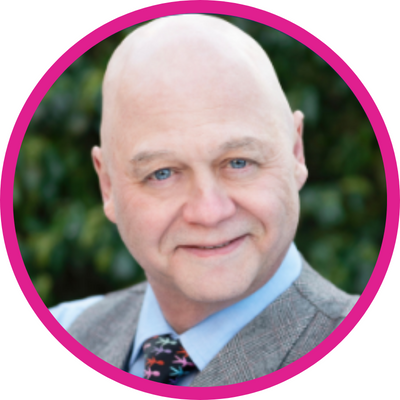IABC is excited to announce its Spotlight Session with Helio Fred Garcia, President of Logos Consulting Group, taking place 5 June at World Conference 2023! This is just a taste of what communication professionals can look forward to in Toronto, Canada, 4-7 June 2023.
 The Dangers of Disinformation: How Professional Communicators can Preserve and Promote Civic Order
The Dangers of Disinformation: How Professional Communicators can Preserve and Promote Civic Order
Disinformation and misinformation kill — both people and society. Disinformation is intentionally communicating dishonestly in order to deceive or manipulate the public in support of a political end. Misinformation is members of the public picking up on the disinformation and unknowingly passing it along without necessary awareness that it is false. Both are implicated in hyper-politicization and violent extremism, in the United States, Latin America, Europe, and around the world.
IABC's Code of Ethics notes that professional communicators have the potential to influence society and affect lives. And with that power comes responsibility. The first two principles of the Code are:
- I am honest. My actions bring respect for and trust in the communication profession.
- I communicate accurate information and promptly correct any errors.
In May, the head of the U.S. Food and Drug Administration warned that misinformation has become the leading cause of death in the United States. In 2020 misinformation about COVID-19 led to the U.S. to experience the worst handled pandemic response in the developed world and caused hundreds of thousands of preventable deaths. Starting in mid-2021 misinformation about the COVID-19 vaccine and vaccinations continued the wave of preventable fatalities.
The risks of misinformation go well beyond public health. The January 6 Committee hearings show how in the U.S. disinformation and misinformation inspired thousands of people to attack the Capitol on the day that the 2020 presidential election was to be certified. Some of those domestic terrorists sought out and threatened to assassinate the Vice President, the Speaker of the House, and other members of Congress. But misinformation doesn’t just put human life at risk. Misinformation risks killing democracy itself.
This Spotlight address focuses on the challenges professional communicators face in an environment of increasing mistrust and political turmoil. And it focuses on strategies professional communicators can deploy to avoid becoming misinformation mercenaries and to help their clients and employers more likely communicate honestly and in ways that build trust, rather than erode trust.
About the Speaker
For more than 40 years Helio Fred Garcia has helped leaders build trust, inspire loyalty, and lead effectively. He is a coach, counselor, teacher, writer, and speaker whose clients include some of the largest and best-known companies and organizations in the world.
He is the author of five books on leadership, crisis, trust, and communication. He has worked in dozens of countries on six continents.
Fred has been on the New York University faculty since 1988 and was named the 2016 Executive MBA Great Professor. He has been on the faculty of Columbia University since 2017. In both universities, he teaches crisis, ethics, communication, and leadership.
He previously served for eight years on the leadership faculty at the Swiss Federal Institute of Technology (ETH) Zurich. He has been a distinguished visiting fellow at Tsinghua University in Beijing. For 23 years he has been a contract lecturer at the Wharton School/University of Pennsylvania and for 11 years has been a contract lecturer at the U.S. Defense Information School. He is an alumnus of the National Security Seminar of the U.S. Army War College.
Fred has received the Public Relations Society of America — New York awards for mentoring and for lifetime achievement.
Check back for additional Spotlight Session announcements in the weeks to come!
Register today.